Paths of Glory is a 1957 American anti-war film by Stanley Kubrick based on the novel of the same name by Humphrey Cobb. Set during World War I, the film stars Kirk Douglas as Colonel Dax, the commanding officer of French soldiers who refuse to continue a suicidal attack, after which Dax attempts to defend them against a charge of cowardice in a court-martial.
| Paths of Glory | |
|---|---|
Theatrical release poster | |
| Directed by | Stanley Kubrick |
| Produced by | James B. Harris |
| Screenplay by |
|
| Based on | Paths of Glory by Humphrey Cobb |
| Starring |
|
| Music by | Gerald Fried |
| Cinematography | Georg Krause |
| Edited by | Eva Kroll |
Production company | Bryna Productions |
| Distributed by | United Artists |
Release date |
|
Running time | 88 minutes |
| Country | United States |
| Language | English |
| Budget | $900,000 |
Screenplay
The film begins with a voiceover describing the trench warfare situation of World War I up to 1916. In a château, General Georges Broulard, a member of the French General Staff, asks his subordinate, the ambitious General Mireau, to send his division on a suicide mission to take a well-defended German position called the "Anthill." Mireau initially refuses, citing the impossibility of success, but when Broulard mentions a potential promotion, Mireau quickly convinces himself the attack will succeed.
Mireau proceeds to walk through the trenches, asking several soldiers, "Ready to kill more Germans?" He throws a private out of the regiment for showing signs of shell shock. Mireau leaves the detailed planning of the attack to Colonel Dax of the 701st regiment, despite Dax's protests that the only result of the attack will be to weaken the French Army with heavy losses for no benefit.
Prior to the attack, a drunken lieutenant named Roget leading a night-time scouting mission sends one of his two men ahead. Overcome by fear while waiting for the man's return, Roget lobs a grenade and retreats. Corporal Paris, the other soldier on the mission, finds the body of the scout, who has been killed by the grenade, and confronts Roget. Roget denies any wrongdoing and falsifies his report to Colonel Dax.
The next morning, the attack on the Anthill is a failure. Dax leads the first wave of soldiers over the top into no man's land under heavy fire. None of the men reach the German trenches, and B Company refuse to leave their own trench after sustaining heavy casualties. Mireau, enraged, orders his artillery to open fire on them to force them onto the battlefield. The artillery commander refuses to fire on his own men without written confirmation of the order. Meanwhile, Dax returns to the trenches, and tries to rally B Company to join the battle, but as he climbs out of the trench, the body of a dead French soldier knocks him down.
To deflect blame for the attack's failure, Mireau decides to court martial one hundred of the soldiers for cowardice. Broulard convinces him to reduce the number to three, one from each company. Corporal Paris is chosen because his commanding officer, Roget, wishes to keep him from testifying about his actions in the scouting mission. Private Ferol is picked by his commanding officer because he is a "social undesirable." The last man, Private Arnaud, is chosen randomly by lot, despite having been cited for bravery twice previously.
Dax, who was a criminal defense lawyer in civilian life, volunteers to defend the men at their court-martial. The trial however, is a farce. There is no formal written indictment, a court stenographer is not present, and the court refuses to admit evidence that would support acquittal. In his closing statement, Dax denounces the proceedings: "Gentlemen of the court, to find these men guilty would be a crime to haunt each of you till the day you die." Nonetheless, the three men are sentenced to death.
The night before the scheduled execution, Dax confronts Broulard at a ball with sworn statements by witnesses attesting to Mireau's order to shell his own trenches, in an attempt to blackmail the General Staff into sparing the three men. Broulard takes the statements but brusquely dismisses Dax.
The next morning, the three men are taken out to be shot by firing squad. Dax, suspecting Roget for his nomination of Paris, forces Roget to lead the executions. While a sobbing Ferol is blindfolded, Paris refuses Roget's offer of a blindfold and reacts ambiguously to Roget's meek apology. Arnaud, meanwhile, was so badly injured after starting a fight in prison that he must be carried out in a stretcher and tied to the post. All three men are then executed.
Following the executions, Broulard breakfasts with the gloating Mireau. Broulard reveals he has invited Dax to attend and tells Mireau that he will be investigated for the order to fire on his own men. Mireau leaves angrily, protesting that he has been made a scapegoat. Broulard then blithely offers Mireau's command to Dax, assuming that Dax's attempts to stop the executions were a ploy to gain Mireau's job. Discovering that Dax was in fact sincere, Broulard angrily rebukes him for his idealism while a disgusted Dax calls Broulard a "degenerate, sadistic old man."
After the execution, some of Dax's soldiers are raucously partying at an inn. Their mood shifts as they listen to a captive German girl sing a sentimental folk song. Dax decides to leave without informing the men that they have been ordered to return to the front. His face hardens as he returns to his quarters.
- Kirk Douglas as Colonel Dax, commanding officer, 701st Infantry Regiment
- Ralph Meeker as Corporal Philippe Paris, 701st Infantry Regiment
- Adolphe Menjou as Major General Georges Broulard, corps commander
- George Macready as Brigadier General Paul Mireau, divisional commander
- Wayne Morris as Lieutenant Roget, company commander, 701st Infantry Regiment
- Richard Anderson as Major Saint-Auban, Mireau's aide de camp
- Joe Turkel as Private Pierre Arnaud, 701st Infantry Regiment (credited as Joseph Turkel)
- Christiane Kubrick as German Singer (credited as Susanne Christian)
- Jerry Hausner as Café Proprietor
- Peter Capell as President of the Court Martial (and narrator)
- Emile Meyer as Father Duprée
- Bert Freed as Staff Sergeant Boulanger, 701st Infantry Regiment
- Kem Dibbs as Private Lejeune, 701st Infantry Regiment
- Timothy Carey as Private Maurice Ferol, 701st Infantry Regiment
- Fred Bell as Shell-Shocked Soldier
- John Stein as Captain Rousseau, artillery battery commander
- Harold Benedict as Captain Nichols, artillery liaison officer
- James B. Harris as Soldier in Attack (uncredited)
Background
Cobb's novel had no title when it was finished, so the publisher held a contest. The winning entry came from the ninth stanza of the Thomas Gray 1751 poem "Elegy Written in a Country Churchyard".
The boast of heraldry, the pomp of pow'r,
And all that beauty, all that wealth e'er gave,
Awaits alike th'inevitable hour.
The paths of glory lead but to the grave.
The book was a minor success when published in 1935, retelling the true-life affair of four French soldiers who were executed to set an example to the rest of the troops. The novel was adapted to the stage the same year by World War I veteran Sidney Howard. The play was a flop on Broadway because of its harsh anti-war scenes that alienated the audience. Nonetheless, Howard continued to believe in the relevance of the subject matter and thought it should be made into a film, writing, "It seems to me that our motion picture industry must feel something of a sacred obligation to make the picture." Fulfilling Howard's "sacred obligation", Stanley Kubrick decided to adapt it to the screen after he remembered reading the book when he was younger. Kubrick and his partners purchased the film rights from Cobb's widow for $10,000.
Paths of Glory is based loosely on the true story of four French soldiers, executed in 1915 during World War I under General Géraud Réveilhac for failure to follow orders. The soldiers were exonerated in 1934. The novel is about the French execution of innocent men to strengthen others' resolve to fight. The French Army did carry out military executions for cowardice, as did most of the other major participants, excluding the United States of America and Australia. The United States sentenced 24 soldiers to death for cowardice, but the sentences were never carried out. However, a significant point in the film is the practice of selecting individuals at random and executing them as a punishment for the sins of the whole group. This is similar to the Roman practice of decimation, which was rarely used by the French Army in World War I. A little known exception is the French decimation (the shooting of every tenth person in a unit) of the 10e Compagnie of 8 Battalion of the Régiment Mixte de Tirailleurs Algériens. During the retreat, at the beginning of the war, these French-African soldiers refused an order to attack. They were shot on December 15, 1914, near Zillebeke in Flanders.
Development
Kubrick once said of his decision to make a war film: "One of the attractions of a war or crime story is that it provides an almost unique opportunity to contrast an individual or our contemporary society with a solid framework of accepted value, which the audience becomes fully aware of, and which can be used as a counterpoint to a human, individual, emotional situation. Further, war acts as a kind of hothouse for forced, quick breeding of attitudes and feelings. Attitudes crystallise and come out into the open. Conflict is natural, when it would in a less critical situation have to be introduced almost as a contrivance, and would thus appear forced or, even worse, false."
Although Kubrick's previous film The Killing had failed at the box office, it had managed to land on several critical Top-Ten lists for the year. Dore Schary, then head of production at Metro-Goldwyn-Mayer, liked the film and hired Kubrick and Harris to develop film stories from MGM's slush pile of scripts and purchased novels. Finding nothing they liked, Kubrick remembered reading Cobb's book years before and suggested it as their next project. Schary strongly doubted the commercial success of the story, which had already been turned down by every other major studio.
After Schary was fired by MGM in a major shake-up, Kubrick and Harris managed to interest Kirk Douglas in a script version that Kubrick had done with Calder Willingham. United Artists agreed to back it with Douglas as the star.
Writing
Kubrick eventually hired Calder Willingham to work on the script of Paths of Glory (1957), of which Jim Thompson had written earlier drafts. The specific contributions by Kubrick, Thompson, and Willingham to the final script were disputed, and the matter went to arbitration with the Writers' Guild.
Filming
Production took place entirely in Bavaria, Germany, especially at the Schleissheim Palace near Munich. Timothy Carey was fired during production. He was replaced in the scenes remaining to be shot with a double. The film cost slightly less than $1 million and just about broke even.
An early critical test of Kubrick's obsession with control on the set came during the making of Paths of Glory. As recalled by Kirk Douglas:
He made the veteran actor Adolphe Menjou do the same scene 17 times. "That was my best reading." Menjou announced. "I think we can break for lunch now." It was well past the usual lunch time but Kubrick said he wanted another take. Menjou went into an absolute fury. In front of Douglas and the entire crew he blasted off on what he claimed was Kubrick's dubious parentage, and made several other unprintable references to Kubrick's relative greenness in the art of directing actors. Kubrick merely listened calmly, and, after Menjou had spluttered to an uncomplimentary conclusion, said quietly: "All right, let's try the scene once more." With utter docility, Menjou went back to work. "Stanley instinctively knew what to do," Douglas says.
The only female character in the film, the woman who sings "The Faithful Hussar", was portrayed by German actress Christiane Harlan (credited in the film as Susanne Christian). She and Kubrick later married; the couple remained together until his death in 1999.
Score
The music score, by Gerald Fried, was the first to use percussion instruments only, except in the credits.
The film premiered in Munich on Nov 1, 1957 (the AFI incorrectly lists it as September 18). It was released in the United States in December 1957. It was considered a modest box office success and earned Kubrick critical acclaim.
Request Movie Now
Watch movie Paths Of Glory online on Amazon
Watch movie Paths Of Glory online
Watch The Movie On Prime
Kisna Full HD Movie Download
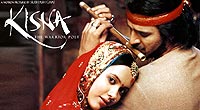
Naami Chor Full HD Movie Download
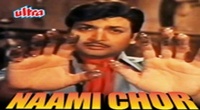
Punnagai Mannan Full HD Movie Download
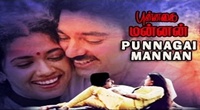
Apsara Full HD Movie Download
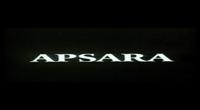
Love In Tokyo Full HD Movie Download
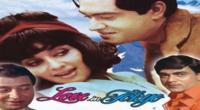
Udaan Full HD Movie Download

Sikandar (2009) Full HD Movie Download
.jpg)
Baaz: A Bird in Danger Full HD Movie Download
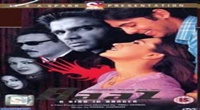
Ghar Ghar Ki Kahani (1988) Full HD Movie Download
.jpg)
Parthale Paravasam Full HD Movie Download

Datta Putrudu Full HD Movie Download

Pelli Pusthakam Full HD Movie Download

The Hangover Part 3 Full HD Movie Download
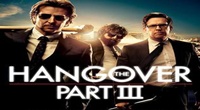
Enga Mama Full HD Movie Download
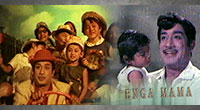
Bhama Kalapam Full HD Movie Download

Nelavanka Full HD Movie Download

Bangaru Kanuka Full HD Movie Download
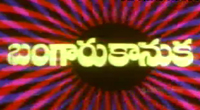
Pelli Koduku Ammabadunu Full HD Movie Download
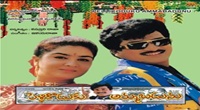
Maro Seetha Katha Full HD Movie Download
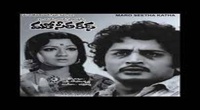
Gruha Lakshmi Full HD Movie Download
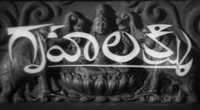
Kalyana Ramudu Full HD Movie Download
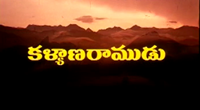

Download latest Movie from bollywood
Request for Download movie Paths Of Glory
- Bollywood movies
- Latest Bollywood movies
- Download all bengali movies
- Download all bhojpuri movies
- Download all english movies
- Download all gujarati movies
- Download all hindi movies
- Download all kannada movies
- Download all malayalam movies
- Download all marathi movies
- Download all oriya movies
- Download all punjabi movies
- Download all tamil movies
- Download all telugu movies
- Bollywood action movies
- Bollywood adventure movies
- Bollywood animation movies
- Bollywood classical movies
- Bollywood comedy movies
- Bollywood crime movies
- Bollywood devotional movies
- Bollywood documentary movies
- Bollywood drama movies
- Bollywood family movies
- Bollywood fantasy movies
- Bollywood historical movies
- Bollywood history movies
- Bollywood horror movies
- Bollywood musical movies
- Bollywood mystery movies
- Bollywood mythological movies
- Bollywood patriotic movies
- Bollywood romance movies
- Bollywood romantic movies
- Bollywood sci-fi movies
- Bollywood social movies
- Bollywood spiritual movies
- Bollywood sports movies
- Bollywood suspense movies
- Bollywood thriller movies
- Bollywood war movies
- Hot actress list
- Hot gujarati actress list
- Hot tamil actress list
- Hot bhojpuri actress list
- Hot assam actress list
- Hot bihari actress list
- Hot jammu and kashmir actress list
- Hot gujarati actress list
- Hot haryana actress list
- Hot konkani actress list
- Hot marathi actress list
- Hot odia actress list
- Hot punjabi actress list
- Hot rajasthani actress list
- Hot kannada actress list
- Hot malayalam actress list
- Hot telugu actress list
- Hot tulu actress list
- Hot Actress list from Indian city
- Hot actress list from ahmedabad
- Hot actress list from alappuzha
- Hot actress list from bangalore
- Hot actress list from bangalore
- Hot actress list from bhopal
- Hot actress list from chandigarh
- Hot actress list from chennai
- Hot actress list from guwahati
- Hot actress list from hyderabad, india
- Hot actress list from indore
- Hot actress list from jaipur
- Hot actress list from kannur
- Hot actress list from kochi
- Hot actress list from kolkata
- Hot actress list from kollam
- Hot actress list from kottayam
- Hot actress list from kozhikode
- Hot actress list from lucknow
- Hot actress list from madurai
- Hot actress list from mangalore
- Hot actress list from mumbai
- Hot actress list from mysore
- Hot actress list from new delhi
- Hot actress list from patna
- Hot actress list from pune
- Hot actress list from thiruvananthapuram
- Hot actress list from thrissur
- Hot actress list from tiruchirappalli
- Hot actress list from vijayawada
- Hot actress list from visakhapatnam
- All Bollywood Movies
- Bollywood Celeb
- >Art Director
- >Audiography
- >Background Music
- >Banner
- >Choreographer
- >Cinematographer
- >Costume Designer
- >Dialogue Writer
- >Director
- >Distributor
- >Editor
- >Executive Producer
- >Hair Stylist
- >Lyricist
- >Music Director
- >Photographer
- >Playback Singers
- >Presenter
- >Producer
- >Production Company
- >Production Designer
- >Screenplay
- >Singer
- >Sound
- >Actor
- >Story Writer
- >Studio
- >Video Director
- >Miscellaneous
- >Publicity (pro)
- >Web Creator
- >Production Labs
- >Publicity Design
- >Publicity Stills
- >Writer
- >Miscellaneous Artists
- >Visual Effects
- >Reporter
- >Music Company
- >Shooting Studios
- >Picturised On
- >Line Producer
- >Co Producer
- >Asst Director
- >Casting Director
- >Cinematography
- >Choreography
- >Dialouge
- >Editing
- >Lyrics
- >Music
- >Story
- >Playback Singer Female
- >Playback Singer Male
- >Actor In A Comic Role (male/female)
- >Child Artiste
- >Ensemble Cast
- >Actor Popular Choice (male)
- >Actor Popular Choice (female)
- >Sa Re Ga Ma Pa Song Of The Year
- >Actor In Supporting Role
- >Actress In Supporting Role
- >Actor In Leading Role
- >Art Direction
- >Actress In Leading Role
- >Sound Recording
- >Costume Design
- >Special Effects
- >Action
- >Actor In A Negative Role
- >Lifetime Achievement Award
- >Cinematic Exellence (director)
- >Cinematic Exellence (male)
- >Cinematic Exellence (female)
- >International Male Icon
- >International Female Icon
- >Actor In A Supporting Role (male)
- >Actor In A Supporting Role (female)
- >Actor In A Comic Role
- >Playback Singer (male)
- >Playback Singer (female)
- >Most Promising Debut (female)
- >Most Promising Debut (male)
- >Most Promising Director
- >Sound Design
- >Lifetime Jodi
- >Marketed Film
- >Jury Award For Best Actor
- >Jury Award For Best Actress
- >Jury Award For Best Film
- >Jury Award For Best Director
- >Playback Singer(male)
- >Lifetime Acheivement Award (male)
- >Excellence Award
- >Jodi Award
- >Performer Of The Year
- >Presented By
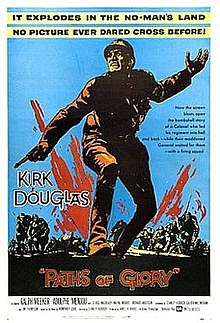 Story of movie Paths Of Glory :
Story of movie Paths Of Glory :